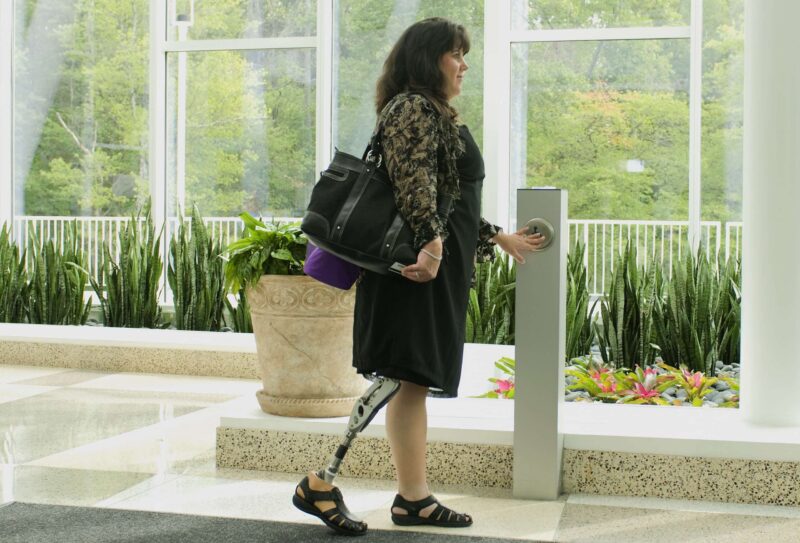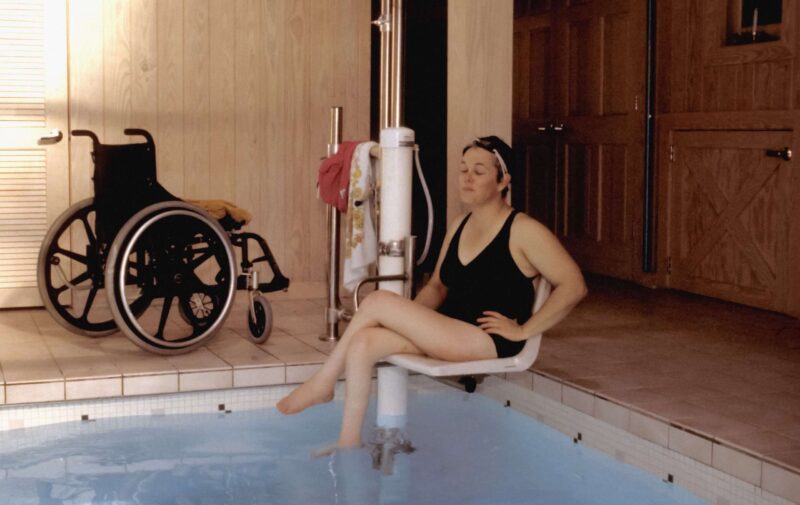Are disabled tenants unfairly discriminated against?
It’s illegal to discriminate against disabled tenants, but are you doing it without even realising it?
Most non-disabled people don’t even notice how difficult it is to navigate transport, roads and buildings if you are disabled, and when it comes to renting and buying, life can be even trickier.
According to the figures from the Office of National Statistics in 2019, disabled people are:
- More likely to rent social housing. 24.7% of disabled people rented social housing in 2019, compared to just 8.2% of non-disabled people
- Less likely to own their own home. Just 42.4% owning property compared to 53.2% of non-disabled people in 2019
- Less likely to own if severely disabled. The study showed that just 4.1% disabled people aged 16-64, who had severe disabilities or specific learning difficulties, owned their own home
- Less likely to live with parents when young. 67.6% of young disabled people aged 16-24 lived with their parents, compared to 73.1% of young non-disabled people

What homes are available to disabled people?
Disabled people make up a significant portion of the world:
- Arround 10% of the global population is disabled
- There is over 11 million disabled people in Britain
- Over 18% of the working-age population in Britain is disabled
But despite this, they have a much smaller choice of homes.
Older properties tend to have narrower doors and hallways and, if converted into flats, rarely have lifts installed, so aren’t suitable for people who use wheelchairs or have physical disabilities that make walking difficult. New builds don’t always consider useability for disabled people either.
There is also a trend in bungalow conversion. Ideal for disabled and older people because everything is on one floor, developers are buying up bungalows, adding an additional floor and therefore removing that property from the pool of suitability.
Social housing tends to be more considerate of wider needs, which is why there is a higher proportion of disabled people in social housing.
However, lack of choice isn’t the only thing holding disabled renters and buyers back.
What about disability support?
Disability benefit is notoriously unreliable, with regular changes to the rules that force disabled people to ‘prove’ the nature of their disability. A 2018 survey found that 60% of people in receipt of Employment and Support Allowance said it was not enough to live on.
This makes it harder for disabled people to find their own home to rent, let alone to buy. As the price of rent and house prices go up, non-disabled people are buying with friends or looking to smaller, more unusual properties to invest in. But these aren’t always options for disabled people.
Disabled people who work can also find they face discrimination in the workplace, making it difficult to find a new job or have their current job adapt to their needs. If you’re a disabled person looking to buy your first home, it’s worth having a chat with our mortgage advisors who provide free advice from start to finish.

What can landlords do to help?
There are a few things that landlords can do to help widen the properties available to disabled people:
- Highlight the USPs. If your property has lift access, particularly wide hallways that could accommodate a wheelchair, or grab rails in the shower, make sure to mention them in your listing (along with great pics!)
- Think about renovations. When you’re updating your property, do some research and see if there is anything you could do that would make your property more suitable for a disabled renter
- Have a conversation. It may be that something happens to your tenant that means they need more support – this could be an accident or diagnosis of a long-term illness. Have a chat with them to see what’s going on and how you might be able to support them in staying in your property